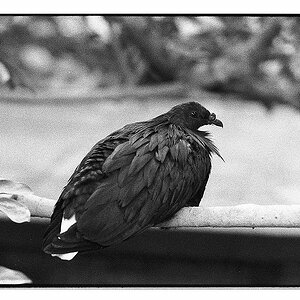itsanaddiction
TPF Noob!
- Joined
- Dec 11, 2007
- Messages
- 151
- Reaction score
- 1
- Location
- All over Louisiana
- Can others edit my Photos
- Photos OK to edit
Ok so I worked for a student housing company. They were paying this photographer $500/property to take these HORRIBLE pictures. Well I and my regional opened our big mouths and said I could do it better. Not being smart, I did not request/demand any money for the images. One property led to an additional 6 when I switched regions. Since then, I was wrongfully terminated and am in the process of getting money owed to me. I am wondering if I have any rights to the photos considering I was an employee and just "handed them over". Can I have them remove them and pay me? Or was I ignorant and just gave away thousands of dollars worth of images. (PS These are used on their websites, brochures, billboards, etc.)
And before you answer, yes, I made an ignorant move, but no, I did not think I would ever A)leave the company of my own accord and B) be terminated considering I was working 12-16 hours a day but yayy for being salary right (sarcasm).
And before you answer, yes, I made an ignorant move, but no, I did not think I would ever A)leave the company of my own accord and B) be terminated considering I was working 12-16 hours a day but yayy for being salary right (sarcasm).









